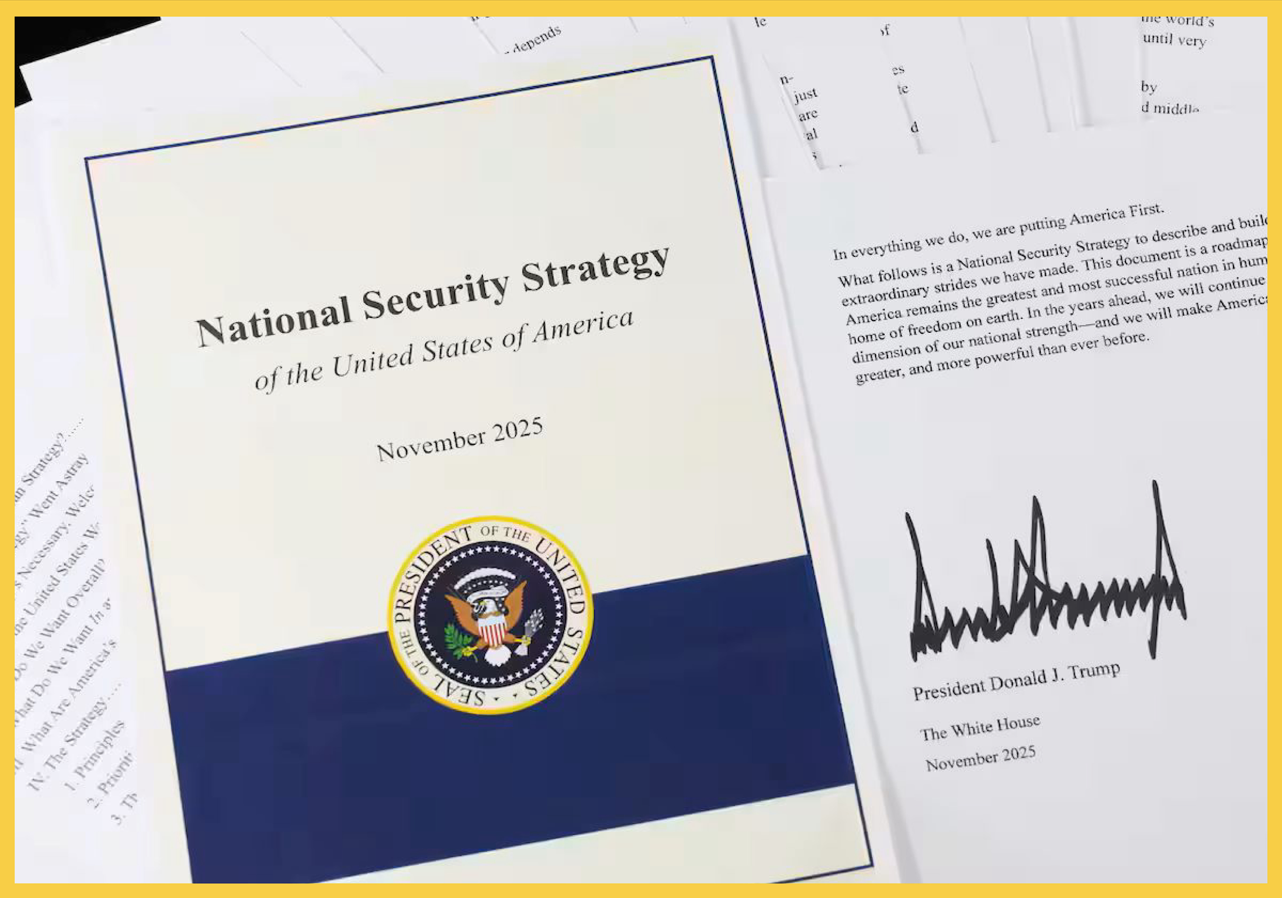
Diao Daming, Professor at School of International Studies and Deputy Director of Center for American Studies, Renmin University
Dec 19, 2025
The new White House National Security Strategy provides a critical window for understanding America’s view of the roles of major powers and the international order. But Donald Trump’s brash and unpredictable personal characteristics are a wild card that will keep the world in suspense.

Franz Jessen, Former EU Ambassador to the Philippines and Vietnam; EU Deputy Head (Beijing); Economist and Diplomat in EU-Asia Relations
Sebastian Contin Trillo-Figueroa, Geopolitics Analyst in EU-Asia Relations and AsiaGlobal Fellow, The University of Hong Kong
Dec 19, 2025
The Trump administration’s 2025 National Security Strategy reframes the U.S.-Europe relationship from a partnership based on law and institutions into one judged through identity, heritage, and demographic loyalty. This “Trump Corollary” marks a decisive break from the post-1949 transatlantic order and deepens the risk of a lasting rift between Europe and the United States.
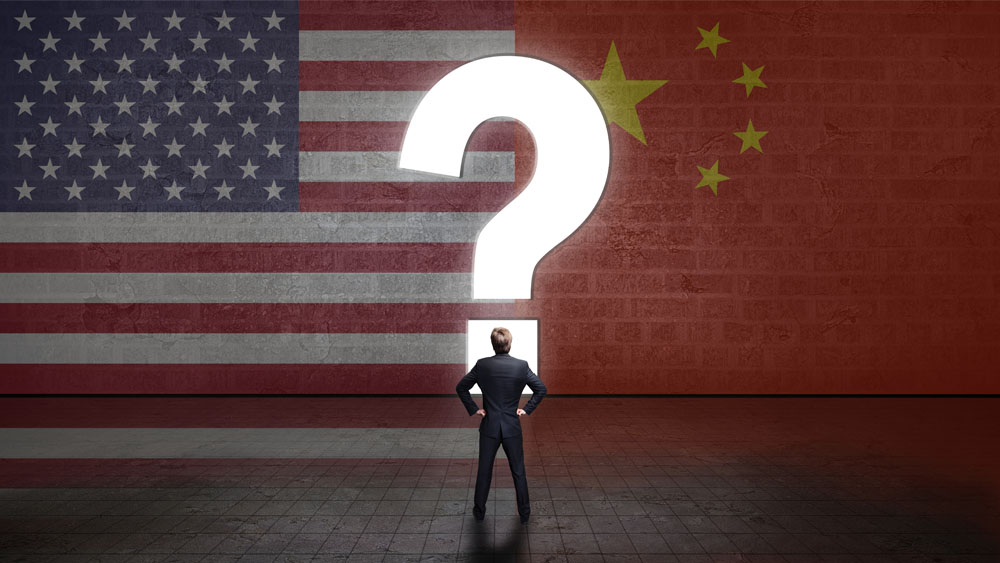
Mallie Prytherch, Researcher at Centre on Contemporary China and the World, University of Hong Kong
Dec 19, 2025
The first Trump–Xi summit since 2025 brought high hopes and headline deals on trade, fentanyl, and rare earths, but diverging goals and ambiguous promises hint at the fragility of this latest U.S.–China rapprochement. The United States secured pledges on curbing fentanyl flows, increased agricultural purchases, and the removal of export controls on rare earths, while emphasizing symbolic gains in respect and stability.
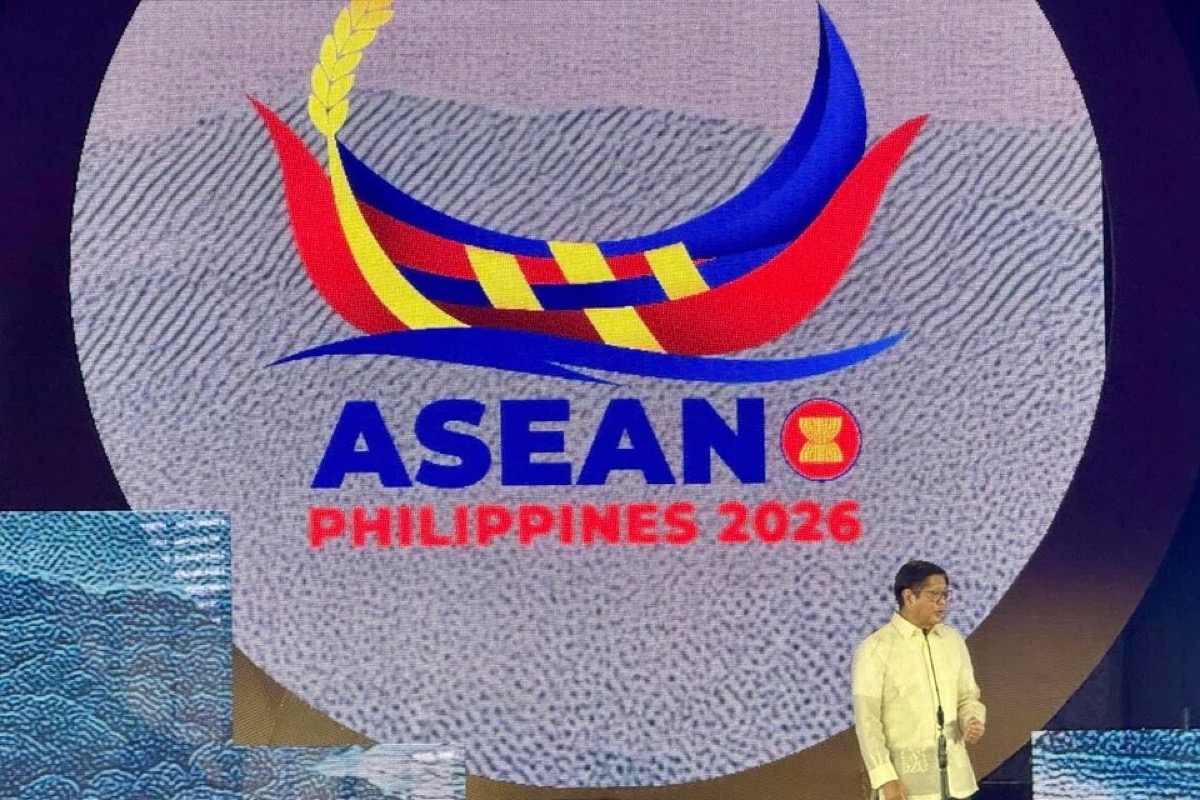
Lucio Blanco Pitlo III, President of Philippine Association for Chinese Studies, and Research Fellow at Asia-Pacific Pathways to Progress Foundation
Dec 18, 2025
ASEAN’s leadership has now been passed onto the Philippines during a time when traditional world powers like the U.S. and China are courting new relationships in rising regions.
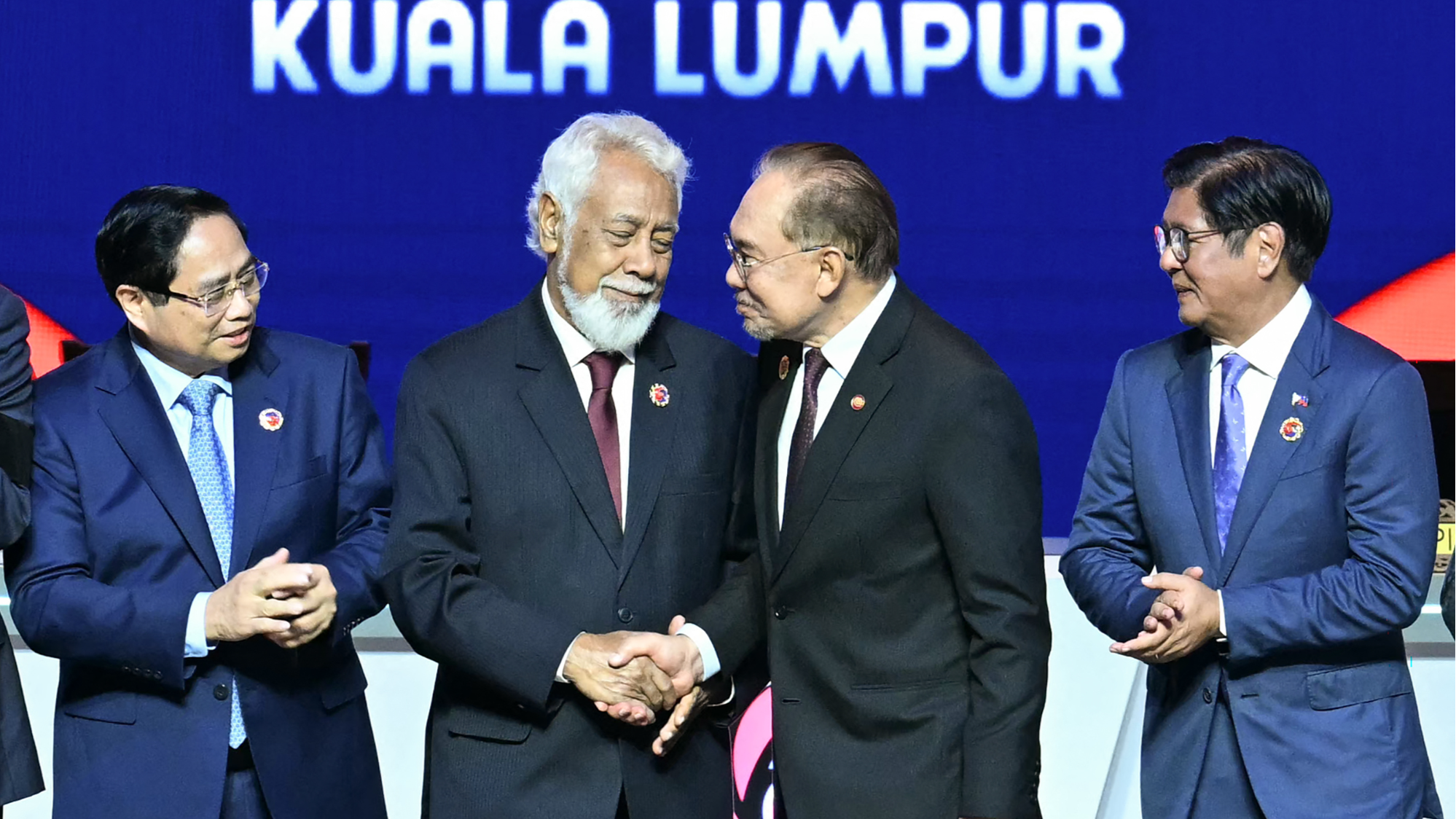
Brian Wong, Assistant Professor in Philosophy and Fellow at Centre on Contemporary China and the World, HKU and Rhodes Scholar
Dec 18, 2025
Timor-Leste’s accession to ASEAN underscores its expanding but still limited relationship with China, marked by significant infrastructure and trade cooperation alongside ongoing institutional and investment challenges. Deeper and more coordinated Chinese engagement would enable Timor-Leste to play a meaningful role in strengthening Sino-ASEAN cooperation.
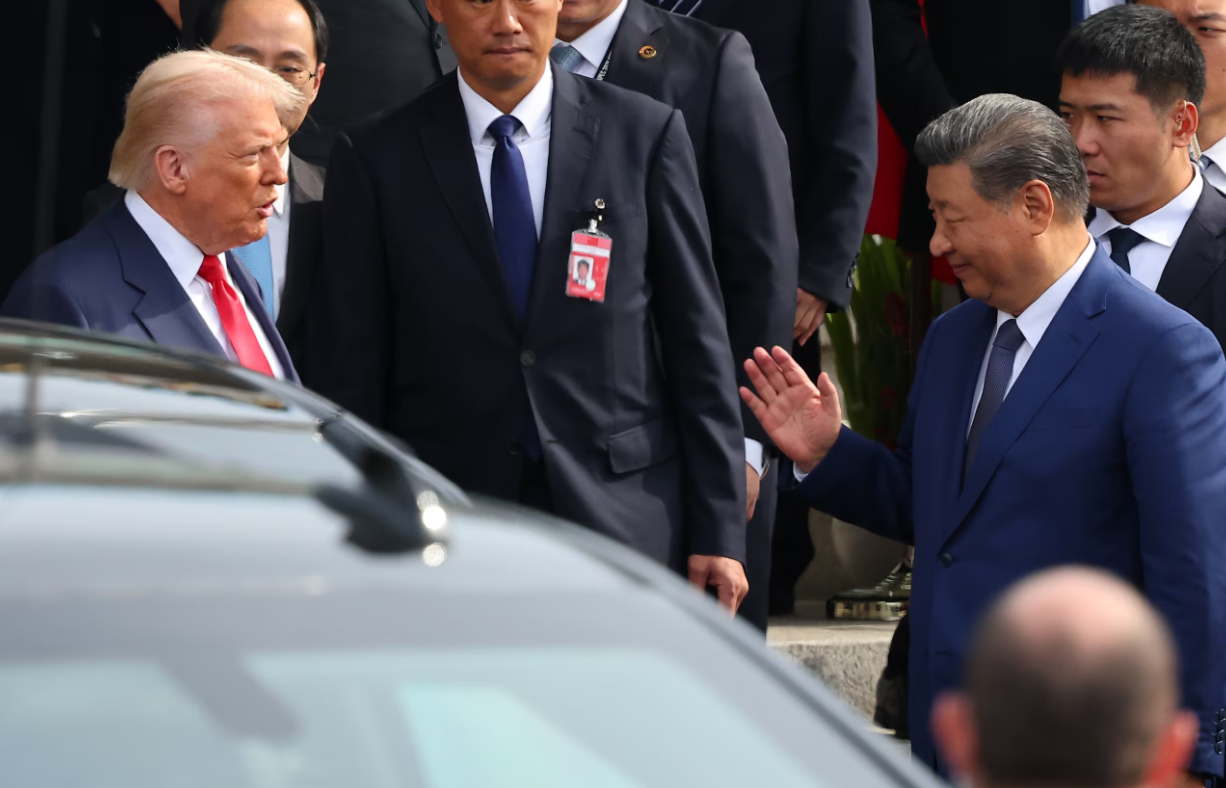
Bian Qingzu, Research Fellow, China Foundation for International Studies
Dec 18, 2025
Neither China nor the U.S. can change the other. They can only choose peaceful coexistence, meet each other halfway, increase mutual trust and cooperation and pursue common prosperity. Bilateral ties for the foreseeable future will follow the pattern of “fighting but not breaking up.”

Sun Chenghao, Fellow, Center for International Security and Strategy of Tsinghua University; Munich Young Leader 2025
Dec 08, 2025
Reframing Europe as an example of civilizational erosion reinforces crisis narratives among conservatives in the United States while mirroring problems that exist within Europe itself. In effect, Washington is using Europe’s crisis to tell a story about America.
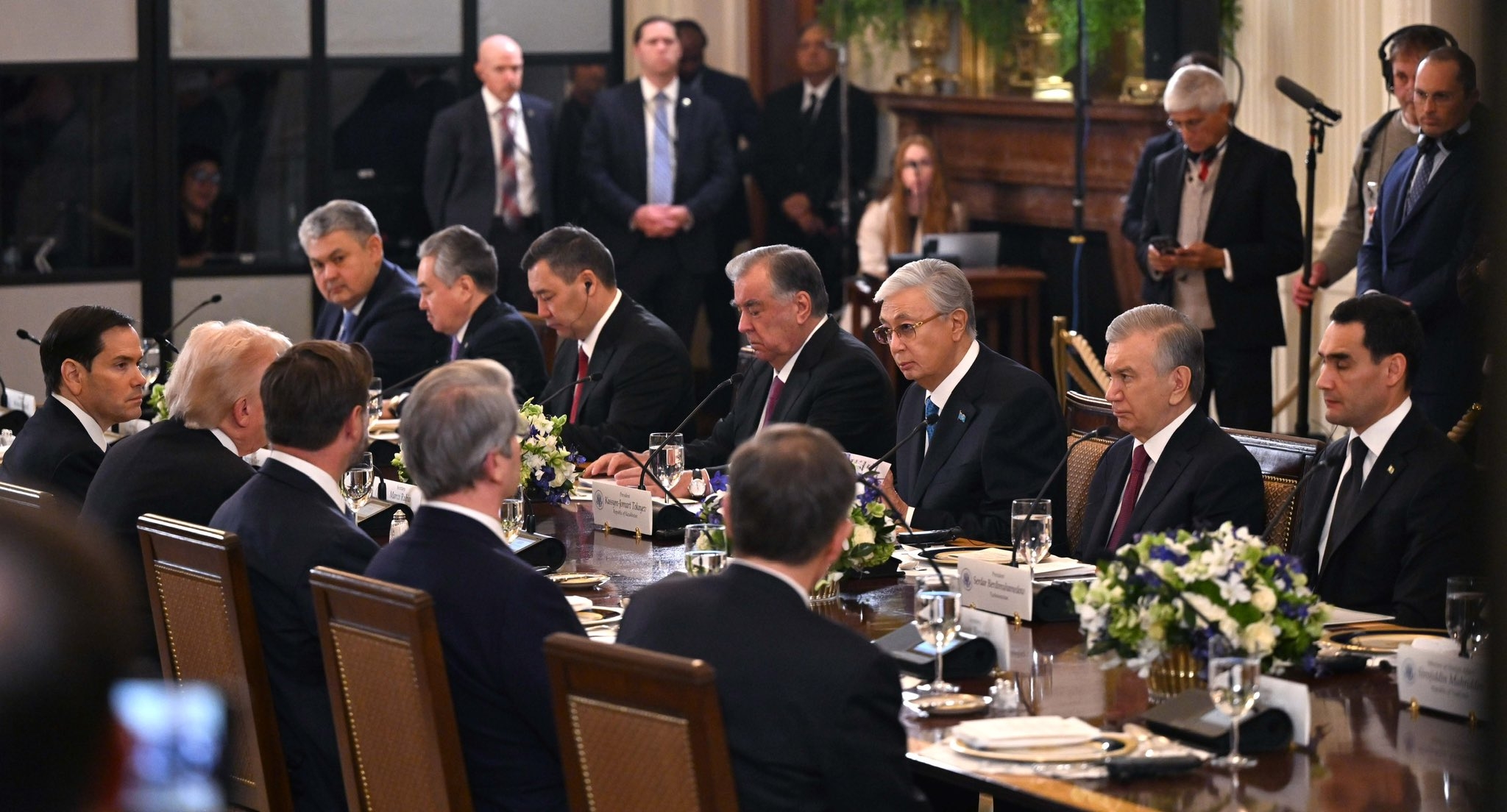
Xiao Bin, Deputy Secretary-general, Center for Shanghai Cooperation Organization Studies, Chinese Association of Social Sciences
Dec 08, 2025
The Trump administration’s transactional diplomacy in Central Asia comes with both reconfiguration and constraints. It has broadened the scope of U.S. engagement, yet its depth and structural impact on regional geopolitics are limited.

Sebastian Contin Trillo-Figueroa, Geopolitics Analyst in EU-Asia Relations and AsiaGlobal Fellow, The University of Hong Kong
Dec 08, 2025
In the near future, the supposed “multipolar” world has been deferred, giving way instead to “orbital bipolarity”—a system in which global politics and industry are pulled into competing gravitational fields centered on the United States and China. Multilateralism has become inert, and every other power now orbits these two anchors while maintaining the fiction of choice and autonomy.

Brian Wong, Assistant Professor in Philosophy and Fellow at Centre on Contemporary China and the World, HKU and Rhodes Scholar
Dec 08, 2025
Trump and Xi’s latest meeting was a remarkable display of amiability between the U.S. and China, yet the conflicts at hand saw no progress toward resolution.
Back to Top

- China-US Focus builds trust and understanding between the U.S. and China through open dialogue among thought leaders.
- Our Offerings
- Topics
- Videos
- Podcasts
- Columnists
- Research Reports
- Focus Digest
- Stay Connected
-
Thanks for signing up!
- Get the latest stories from China-US Focus weekly.